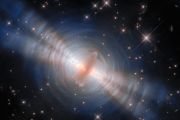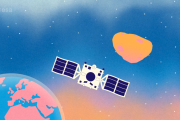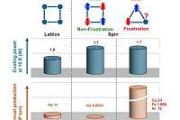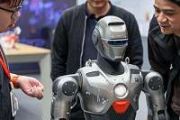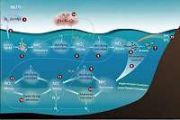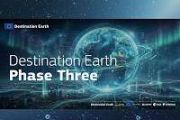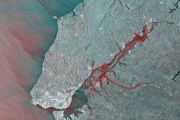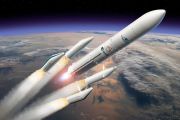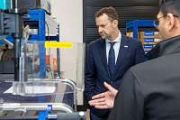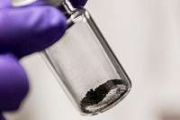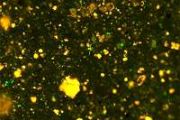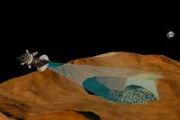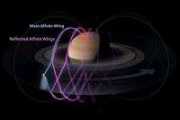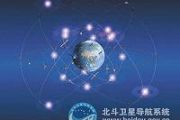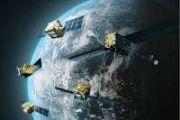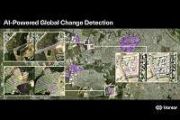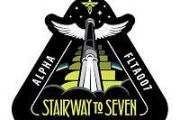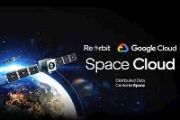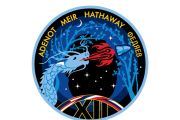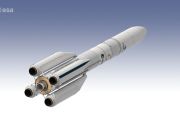
Copernical Team
SpaceX agrees to take Italian experiments to Mars
This request seems a bit unusual, so we need to confirm that you're human. Please press and hold the button until it turns completely green. Thank you for your cooperation!
Press and hold the button
If you believe this is an error, please contact our support team.
185.132.36.159 : e2b20432-f24a-4764-8e25-29228a4c
Week in images: 04-08 August 2025

Week in images: 04-08 August 2025
Discover our week through the lens
Human minds, robotic hands
 Video:
00:05:33
Video:
00:05:33
Last July, a team of robots explored a simulated martian landscape in Germany, guided by an astronaut aboard the International Space Station. This was the final session of the Surface Avatar experiment, a joint initiative between ESA and the German Aerospace Center (DLR) to investigate how astronauts can remotely control robotic teams.
This latest session took place at the DLR site in Oberpfaffenhofen and introduced new levels of autonomy, decision-making and realism, bringing Europe one step closer to seamless human-robot collaboration in space exploration.
Hubble sizes up rare interstellar comet
 Image:
Image:
A team of astronomers has taken the sharpest-ever picture of the unexpected interstellar comet 3I/ATLAS, using the crisp vision of the NASA/ESA Hubble Space Telescope.
ESA's Planetary Defence Office responded promptly to the discovery of the comet, and has been tracking it since the beginning of July.
Now, Hubble's observations from space are allowing astronomers to more accurately estimate the size of the comet’s solid icy nucleus. The upper limit on the diameter of the nucleus is 5.6 km, but it could be as small as 320 m across, researchers report.
Though the Hubble images put tighter constraints on the nucleus size
Webb finds new hints for planet around closest solar twin

Astronomers using the NASA/ESA/CSA James Webb Space Telescope have found strong evidence of a giant planet orbiting a star in the stellar system closest to our own Sun. At just 4 light-years away from Earth, the Alpha Centauri triple star system has long been a compelling target in the search for worlds beyond our solar system.
ESA Astronaut Raphaël Liégeois
 Video:
00:01:23
Video:
00:01:23
ESA astronaut Raphaël Liégeois from Belgium, a member of the ESA Astronaut Class of 2022, was selected in November 2022 from over 22,500 candidates who applied to ESA’s 2021 call for new astronauts.
He began his year-long basic astronaut training at ESA’s European Astronaut Centre (EAC) in Cologne, Germany, in April 2023. This training covered spacecraft systems, spacewalking, flight engineering, robotics, life support systems, survival, and medical training. Raphaël received his astronaut certification alongside fellow astronaut candidates Sophie Adenot, Rosemary Coogan, Pablo Álvarez Fernández, and Marco Sieber at EAC on 22 April 2024, officially marking his transition into
NASA and Boeing Starliner astronaut 'Butch' Wilmore retires
 Astronaut Barry "Butch" Wilmore announced his retirement Wednesday after 25 years with NASA and serving as a U.S. Navy test pilot before becoming an astronaut.
Wilmore, 62, and astronaut Suni Williams gained a lot of media attention when their 10-day Boeing Starliner test flight turned into a nine-month stay on the International Space Station after lifting off on June 5, 2024, and retur
Astronaut Barry "Butch" Wilmore announced his retirement Wednesday after 25 years with NASA and serving as a U.S. Navy test pilot before becoming an astronaut.
Wilmore, 62, and astronaut Suni Williams gained a lot of media attention when their 10-day Boeing Starliner test flight turned into a nine-month stay on the International Space Station after lifting off on June 5, 2024, and retur Ultrasmall optical devices rewrite the rules of light manipulation
 In the push to shrink and enhance technologies that control light, MIT researchers have unveiled a new platform that pushes the limits of modern optics through nanophotonics, the manipulation of light on the nanoscale, or billionths of a meter.
The result is a class of ultracompact optical devices that are not only smaller and more efficient than existing technologies, but also dynamically
In the push to shrink and enhance technologies that control light, MIT researchers have unveiled a new platform that pushes the limits of modern optics through nanophotonics, the manipulation of light on the nanoscale, or billionths of a meter.
The result is a class of ultracompact optical devices that are not only smaller and more efficient than existing technologies, but also dynamically Perseid meteor shower set to peak Aug. 12-13
 The Perseid meteor shower is set to peak in mid August, allowing stargazers to see up to 100 shooting stars per hour.
The shower takes place each year when the Earth barrels through the trail of ancient debris from the Comet Swift-Tuttle. As the Earth's atmosphere collides with the cometary fragments, the friction vaporizes the debris, creating the flashes of "shooting stars."
Th
The Perseid meteor shower is set to peak in mid August, allowing stargazers to see up to 100 shooting stars per hour.
The shower takes place each year when the Earth barrels through the trail of ancient debris from the Comet Swift-Tuttle. As the Earth's atmosphere collides with the cometary fragments, the friction vaporizes the debris, creating the flashes of "shooting stars."
Th Planning for College? Here's What to Know About Financial Hurdles
 As graduation approaches, high school students are faced with numerous decisions that will shape their futures. Among those pivotal choices, selecting the right college can sometimes take a back seat to another crucial aspect: financing that college education. Understanding financial hurdles is imperative for students and their families as they embark on this journey. These hurdles can sometimes
As graduation approaches, high school students are faced with numerous decisions that will shape their futures. Among those pivotal choices, selecting the right college can sometimes take a back seat to another crucial aspect: financing that college education. Understanding financial hurdles is imperative for students and their families as they embark on this journey. These hurdles can sometimes 

